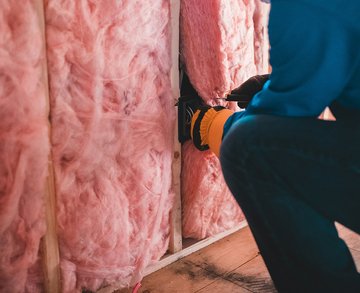Buying your first home can bring with it a whole range of emotions. It is exciting, and joyful, but can also be daunting and downright confusing. So, to make your life easier, here are five essential tips to help you navigate the complex home-buying process, and help you get onto the property ladder.
1. Make Sure You Can Afford It
Before doing anything, you need to determine your budget and make sure you can afford a property. The general rule of thumb is that you must be able to afford a deposit of 5% - 20% of the property price, and the higher the deposit you put down the better, as you’ll get a better interest rate on your mortgage.
Several things will affect your ability to get a mortgage, such as your deposit value, your current salary, and your credit score. Before you apply for a mortgage it's a good idea to look at ways you can improve your credit score, for example:
- Close credit card accounts you no longer use.
- Make debt repayments on time.
- If you’ve never borrowed money before, take out a credit card and pay off the balance in full each month, to show that you can borrow money and pay it off on time.
Lenders will also check whether you can afford the monthly repayments if interest rates rise or your circumstances change. You also need to consider additional costs of owning a property such as the initial conveyancing fees, stamp duty, the cost of surveys, moving costs, and of course, the cost of living (electricity, food, gas etc).
2. Look Into Government Schemes
As a first-time buyer, you should consider looking into government schemes to help you purchase your first home. One popular scheme is a Lifetime ISA, which offers a tax-free boost of up to £1,000 per year towards buying a house.
You could also consider Shared Ownership, whereby you purchase a share of a home from a Housing Association and pay rent on the other part you don’t own.
Each of these government schemes is designed to give you a helping hand when it comes to getting onto the property ladder, so it is highly recommended that you utilise them all you can.
3. Consider Buying with Friends or Family
Another route that will help the house-buying process is to buy with friends and family, as this can significantly lower the overall cost of the mortgage or mean that you can afford a bigger place with two sets of deposit & income.
If you choose this route, you’ll need to think about how you’ll divide the property between the two of you, especially if one is paying a more significant proportion of the deposit. If you’re buying jointly, you can own the property as tenants in common or as joint tenants. Tenants in common will mean that the ownership of the property can be divided in any way you like, and your share can be passed on to a family member when you die. If you’re joint tenants, your share of the property will pass to the other person in the event of your death.
4. Seek Professional Help
To make the home-buying process as smooth as possible, getting professional help is key, especially as it is such a complex process for those who have never experienced it before.
The Property Centre can work with you to find properties that meet your criteria, as well as negotiate with sellers and guide you through the home-buying process. You will also want to speak with a mortgage broker whose job it is to help you find the best mortgage rates and terms for your buying situation.
You will also want to instruct a trusted legal team who will provide you with the knowledge and experience to guide you through the process, providing you with the necessary legal advice and help you need along the way. A conveyancer solicitor will make sure that all the appropriate checks are carried out, and that all the right documentation is in place to allow you to move into the property.
5. Don’t Rush the Process
Our final yet crucial tip is to not rush the process. Buying a home is one of the biggest decisions you’ll ever make, so you should take your time and not get carried away with the first property you like the look of.
You should view several different properties and consider both the pros and cons of each one before making your decision. Look out for key factors such as if there is dampness, the neighbours, room size, noise, pollution, electrics, garden size, cracks in walls, bathroom leaks, parking, drainage, security, and the overall condition of the property. Having a checklist like this while viewing properties can help you establish any pain points and help you assess whether you can imagine yourself living there.
Remember, you will own this property, so you want to ensure it is perfect for you. Speak to a member of our team today and let us help you find the perfect property.





